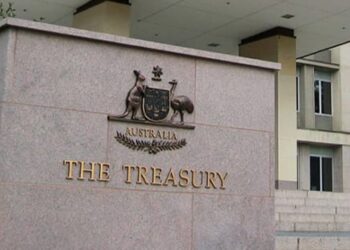When it comes to dealer groups, ASIC’s role is usually to scrutinise, penalise and, occasionally, officiate at their demise. So it’s fair enough that licensees and advisers spat out more than a little coffee while reading chairman Greg Medcraft had appeared alongside Alex Malley to launch CPA’s entry into the IFA market – particularly given that the accounting body had not even commenced its application for an AFSL.
The chairman’s descriptions of CPA Advice as a “bold initiative” and a move to give the rest of the industry the right “nudge” are clearly an endorsement and a deviation from regulatory neutrality, no matter the weasel words ASIC subsequently chose to justify the decision.
But putting ASIC’s faux pas to one side, CPA’s decision is a boon to supporters of independent advice. There are still questions to be answered to be sure, but overwhelmingly, the move has been a loud and proud advertisement for non-conflicted advice.
“The company we are announcing today will set a new benchmark for professional and ethical conduct in making independent financial advice available to all Australian consumers,” Mr Malley said at the launch, clarifying that the licensee will seek to meet the definition of independent advice outlined in Section 923A of the Corporations Act.
The independent and non-aligned movement has undoubtedly gathered steam over the past two years. All three of the lobby groups representing the non-aligned sector – the AIOFP, IFAAA and BFP – have all seen spikes in membership and expressions of interest. Many compliance consultants say they have seen a rise in applications for independently-owned AFSLs, while we have seen former insto players such as former NAB execs Steve Tucker and Paul Heath also loudly enter the space.
Partly the rise has been aided by public expose of what many in the advice industry already knew – that the major institutions are rife with conflicts that often leave clients at the wrong end of a raw deal. There has also been a tech revolution in advice that some dealer groups are warmer towards than others, itself a factor in advisers seeking greater independence.
But perhaps the most compelling reason for the rise of IFAs has been consumer demand. Savvy businessmen like Heath and Tucker have not gone into independent advice for altruistic reasons alone – and the same goes for CPA. Dealer groups are notoriously expensive and difficult to run, especially when there is no product play.
While some advisers may feel threatened by the entry of another big name – and CPA members that currently run their own licences may be especially ticked off – having a global brand herald that the future of advice is independent is a great look and can only bring the topic to the attention of more consumers.
As I reflect on the last two years in the editor’s chair, and having presided over a shift in the magazine’s editorial direction to more explicitly support the non-aligned sector, there is no doubt I leave the industry in a more positive – if disrupted – state than I found it. Independent advice is no longer just a fringe issue but a credible business plan with mainstream consumer appeal.
Be as cynical as you like about the song and dance performed by new entrants, but those who embrace the non-conflicted model of the future will have the last laugh.
From July, Aleks Vickovich will be taking on a Contributing Editor position based in Washington, DC.




All at the IFA your credibility is shot as badly as ASIC
and Medcradt.
Independent advice free of conflict is a great thing. But that is not what most accountants provide. Switching clients to an inhouse administered SMSF is just as bad if not worse than the old days of commission driven agents tied to institutions. Most accountants providing SMSFs are effectively miniature versions of AMP and MLC from the 90’s.
It is appalling that people who should know better have been so hoodwinked by the accountants lobby.
has Medcraft got shares in the CPA advice business.
Conflict free advice is a good thing. But I suspect the supporters of CPA’s move are being blinded by ideology. Far more important is knowledge, experience and a willingness to embrace regulations which are designed to protect consumers. There are many great CPA qualified advisers already. But those who become licensed at the final hour, because the Government are forcing them to do so, are hardly the sort of advisers I would want to build a business on. Especially since most of them will be doing so soley to protect their SMSF revenue.